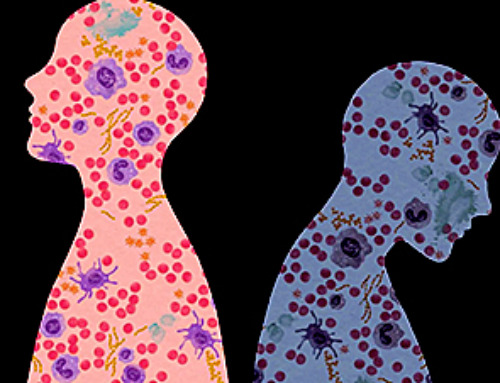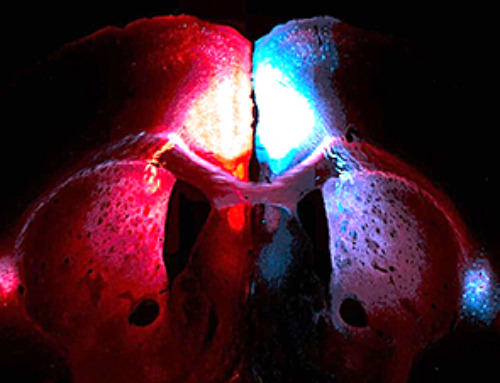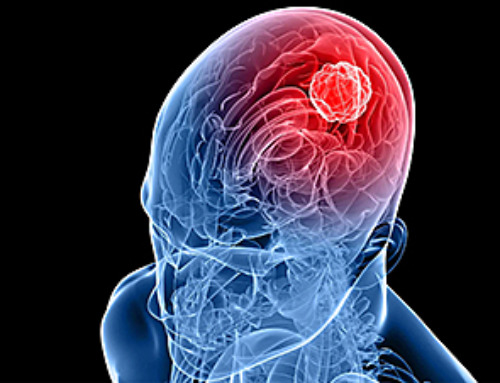Routine lab tests are not reliable for diagnosing Long COVID, according to a new study. The research found that no clinical lab values could serve as biomarkers, highlighting the need to focus on symptoms for diagnosis.
A new study found that most routine laboratory tests are not reliable for diagnosing Long COVID, also known as Post-Acute Sequelae of SARS-CoV-2 infection (PASC).
The study, published in Annals of Internal Medicine, found no reliable biomarker among 25 routine clinical laboratory values for prior infection, PASC, or specific types of PASC clusters. This suggests none of these routine labs can serve as a clinically useful biomarker of PASC.
"Our study shows patients can have severe Long COVID with normal lab results. This suggests doctors should not focus on the results of blood panels to diagnose Long COVID but should focus more on symptoms and ways to help patients get relief by treating their symptoms," said the study's first author, Kristine Erlandson, MD, a professor in the Division of Infectious Diseases at the University of Colorado Anschutz Medical Campus.
Seven percent of all adults in the U.S., nearly 18 million people, currently have long COVID, according to the Agency for Healthcare Research and Quality's Medical Expenditure Panel Survey.
"Our challenge is to discover biomarkers that can help us quickly and accurately diagnose long COVID to ensure people struggling with this disease receive the most appropriate care as soon as possible," said David Goff, MD, PhD, director for the Division of Cardiovascular Sciences at the NIH's National Heart, Lung, and Blood Institute. "Long COVID symptoms can prevent someone from returning to work or school, and may even make everyday tasks a burden, so the ability for rapid diagnosis is key."
Large-Scale Study and Findings
This study was funded by the National Institutes of Health's (NIH) Researching COVID to Enhance Recovery (RECOVER) Initiative. The RECOVER initiative includes multiple research studies that involve thousands of participants from across the country. In Colorado, these studies take place at the Colorado Clinical and Translational Sciences Institute (CCTSI) at CU Anschutz.
To investigate clinical laboratory markers of SARS-CoV-2 and PASC, the researchers examined data from nearly 10,000 adults with and without SARS-CoV-2 infection. The researchers recruited from over 80 enrolling sites across 33 U.S. states plus Washington, DC, and Puerto Rico, making it one of the largest and most diverse studies of its kind.
The study compared results in several ways: between participants with and without prior SARS-CoV-2 infection at six months after infection, between participants with and without PASC, and between participants with each of the four most common PASC symptom phenotypes and those unlikely to have PASC.
Modest Differences, But No Clear Biomarkers
They found participants with prior SARS-CoV-2 infection showed modest increases in HbA1c (a marker of long-term blood sugar levels) and urinary albumin-to-creatinine ratio (uACR), along with small decreases in platelet counts.
"While these differences are statistically significant, these associations are generally small and not reliable enough to serve as diagnostic biomarkers for PASC," Erlandson says.
The researchers suggest this data shows the complexity of PASC as a condition that may involve multiple physiological pathways beyond simple laboratory markers, such as those for inflammation, anemia, or other markers.
"Long COVID has been very elusive; numerous possible symptoms, no definite cause, and no clear treatment. We hear from patients that their concerns are dismissed by providers because their lab tests are normal. In this study, even the exhaustive list of routine blood tests could not help in making a PASC diagnosis. This is an important observation in PASC research as prior smaller studies showed inconsistent abnormalities in some blood tests. Until a reliable biomarker is found, the best diagnostic modality for PASC remains the old-fashioned history taking and clinical assessment," Grace McComsey, MD, senior author of the paper, professor and vice dean of clinical and translational research at Case Western Reserve University.
The researchers also note that it's still important to do routine laboratory tests to rule out other conditions during the process of diagnosing PASC.
Reference: "Differentiation of Prior SARS-CoV-2 Infection and Postacute Sequelae by Standard Clinical Laboratory Measurements in the RECOVER Cohort" by Kristine M. Erlandson, Linda N. Geng, Caitlin A. Selvaggi, Tanayott Thaweethai, Peter Chen, Nathan B. Erdmann, Jason D. Goldman, Timothy J. Henrich, Mady Hornig, Elizabeth W. Karlson, Stuart D. Katz, C. Kim, Sushma K. Cribbs, Adeyinka O. Laiyemo, Rebecca Letts, Janet Y. Lin, Jai Marathe, Sairam Parthasarathy, Thomas F. Patterson, Brittany D. Taylor, Elizabeth R. Duffy, Monika Haack, Boris Julg, Gabrielle Maranga, Carla Hernandez, Nora G. Singer, Jenny Han, Priscilla Pemu, Hassan Brim, Hassan Ashktorab, Alexander W. Charney, Juan Wisnivesky, Jenny J. Lin, Helen Y. Chu, Minjoung Go, Upinder Singh, Emily B. Levitan, Paul A. Goepfert, Janko Ž. Nikolich, Harvey Hsu, Michael J. Peluso, J. Daniel Kelly, Megumi J. Okumura, Valerie J. Flaherman, John G. Quigley, Jerry A. Krishnan, Mary Beth Scholand, Rachel Hess, Torri D. Metz, Maged M. Costantine, Dwight J. Rouse, Barbara S. Taylor, Mark P. Goldberg, Gailen D. Marshall, Jeremy Wood, David Warren, Leora Horwitz, Andrea S. Foulkes and Grace A. McComsey, 13 August 2024, Annals of Internal Medicine.
DOI: 10.7326/M24-0737
News
Blindness Breakthrough? This Snail Regrows Eyes in 30 Days
A snail that regrows its eyes may hold the genetic clues to restoring human sight. Human eyes are intricate organs that cannot regrow once damaged. Surprisingly, they share key structural features with the eyes [...]
This Is Why the Same Virus Hits People So Differently
Scientists have mapped how genetics and life experiences leave lasting epigenetic marks on immune cells. The discovery helps explain why people respond so differently to the same infections and could lead to more personalized [...]
Rejuvenating neurons restores learning and memory in mice
EPFL scientists report that briefly switching on three “reprogramming” genes in a small set of memory-trace neurons restored memory in aged mice and in mouse models of Alzheimer’s disease to level of healthy young [...]
New book from Nanoappsmedical Inc. – Global Health Care Equivalency
A new book by Frank Boehm, NanoappsMedical Inc. Founder. This groundbreaking volume explores the vision of a Global Health Care Equivalency (GHCE) system powered by artificial intelligence and quantum computing technologies, operating on secure [...]
New Molecule Blocks Deadliest Brain Cancer at Its Genetic Root
Researchers have identified a molecule that disrupts a critical gene in glioblastoma. Scientists at the UVA Comprehensive Cancer Center say they have found a small molecule that can shut down a gene tied to glioblastoma, a [...]
Scientists Finally Solve a 30-Year-Old Cancer Mystery Hidden in Rye Pollen
Nearly 30 years after rye pollen molecules were shown to slow tumor growth in animals, scientists have finally determined their exact three-dimensional structures. Nearly 30 years ago, researchers noticed something surprising in rye pollen: [...]
NanoMedical Brain/Cloud Interface – Explorations and Implications. A new book from Frank Boehm
New book from Frank Boehm, NanoappsMedical Inc Founder: This book explores the future hypothetical possibility that the cerebral cortex of the human brain might be seamlessly, safely, and securely connected with the Cloud via [...]
How lipid nanoparticles carrying vaccines release their cargo
A study from FAU has shown that lipid nanoparticles restructure their membrane significantly after being absorbed into a cell and ending up in an acidic environment. Vaccines and other medicines are often packed in [...]
New book from NanoappsMedical Inc – Molecular Manufacturing: The Future of Nanomedicine
This book explores the revolutionary potential of atomically precise manufacturing technologies to transform global healthcare, as well as practically every other sector across society. This forward-thinking volume examines how envisaged Factory@Home systems might enable the cost-effective [...]
A Virus Designed in the Lab Could Help Defeat Antibiotic Resistance
Scientists can now design bacteria-killing viruses from DNA, opening a faster path to fighting superbugs. Bacteriophages have been used as treatments for bacterial infections for more than a century. Interest in these viruses is rising [...]
Sleep Deprivation Triggers a Strange Brain Cleanup
When you don’t sleep enough, your brain may clean itself at the exact moment you need it to think. Most people recognize the sensation. After a night of inadequate sleep, staying focused becomes harder [...]
Lab-grown corticospinal neurons offer new models for ALS and spinal injuries
Researchers have developed a way to grow a highly specialized subset of brain nerve cells that are involved in motor neuron disease and damaged in spinal injuries. Their study, published today in eLife as the final [...]
Urgent warning over deadly ‘brain swelling’ virus amid fears it could spread globally
Airports across Asia have been put on high alert after India confirmed two cases of the deadly Nipah virus in the state of West Bengal over the past month. Thailand, Nepal and Vietnam are among the [...]
This Vaccine Stops Bird Flu Before It Reaches the Lungs
A new nasal spray vaccine could stop bird flu at the door — blocking infection, reducing spread, and helping head off the next pandemic. Since first appearing in the United States in 2014, H5N1 [...]
These two viruses may become the next public health threats, scientists say
Two emerging pathogens with animal origins—influenza D virus and canine coronavirus—have so far been quietly flying under the radar, but researchers warn conditions are ripe for the viruses to spread more widely among humans. [...]
COVID-19 viral fragments shown to target and kill specific immune cells
COVID-19 viral fragments shown to target and kill specific immune cells in UCLA-led study Clues about extreme cases and omicron’s effects come from a cross-disciplinary international research team New research shows that after the [...]





















